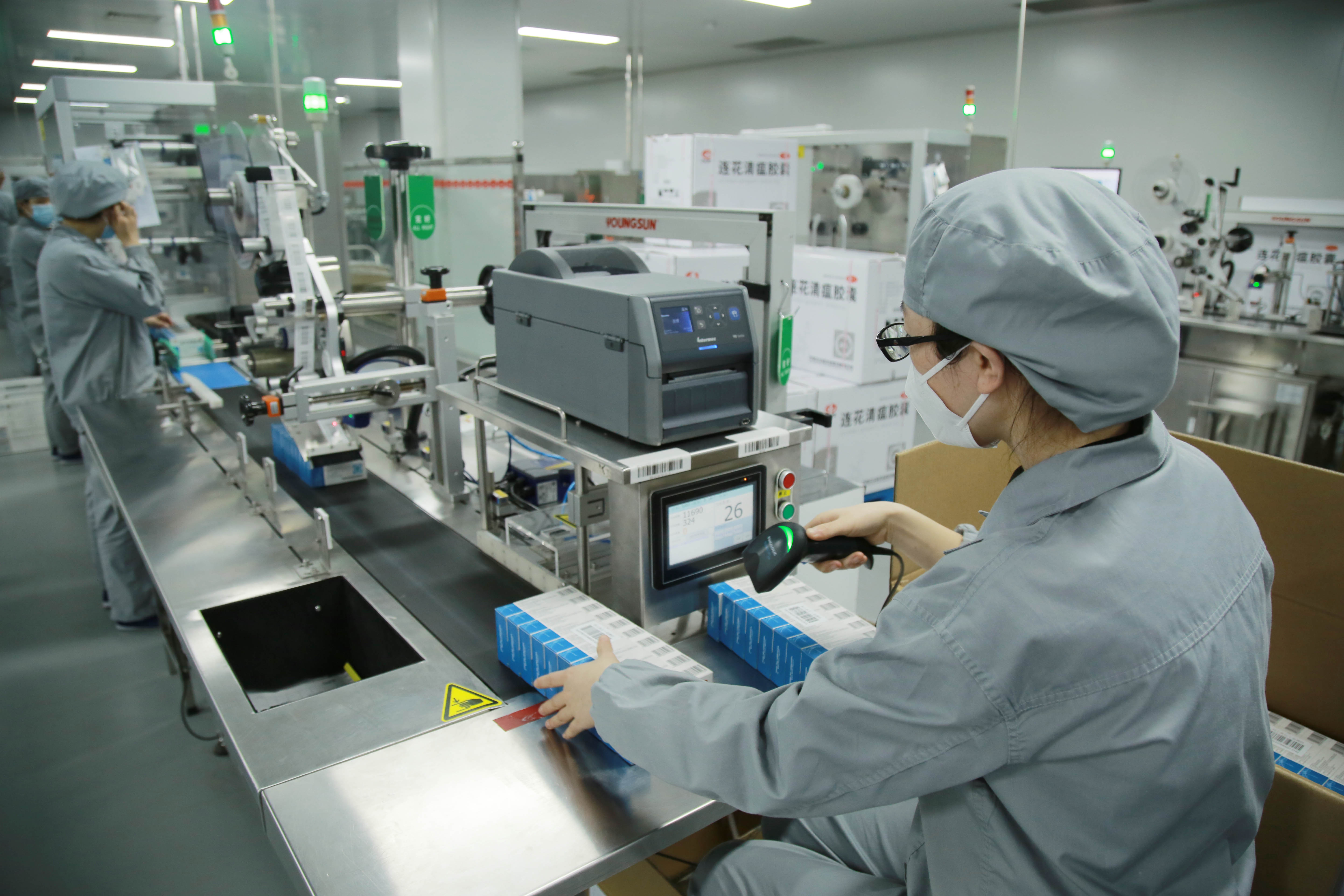TCM set to play a more crucial role in ensuring global public health
- By Mathew Wong
 0 Comment(s)
0 Comment(s) Print
Print E-mail China.org.cn, February 26, 2022
E-mail China.org.cn, February 26, 2022

Since the outbreak of the COVID-19 pandemic, many observers have started to rethink the importance and contribution of traditional Chinese medicine (TCM) towards global health development. As such, it is important and necessary to assess the opportunities and challenges brought by the overall development of TCM and explore directives for further integrating it into the healthcare system.
Apparently, TCM has long been perceived as an ideal alternative treatment, especially in terms of compensating the weaknesses associated with Western medicine. For instance, radiation treatment and chemotherapy received by many cancer patients often induce toxic side effects. Some patients even find themselves too weak to go face further treatments after receiving major surgery. Nonetheless, TCM is holistic and immunity-strengthening, helping to reduce the side effects of these treatments. By integrating both Chinese and Western medicine, strong side effects can be eased. For example, acupuncture is effective in relieving musculoskeletal pain and the after-effects caused by electrotherapy and chemotherapy.
It is anticipated that the further rise of TCM will help explore more directions in the healthcare sector. In fact, many people nowadays also prefer a hybrid approach in treatment to increase the likelihood and speed of the recovery progress. A number of patients will also assess the risks and benefits right before receiving medical treatment from their healthcare professionals. Therefore, figuring out alternative medical treatments is always desirable when there is a surging number of diseases found to be incurable by existing means of treatment and medicine.
Another unique strength of the TCM is related to its emphasis on comprehensive coordination inside the human body, the prevention of diseases, and body conditioning. It helps people prevent sickness at the root. One can observe that Chinese medicine treatments often involve the dietary and herbal dimensions in order to coordinate the human body condition.
Apparently, an increasing number of cases of chronic diseases reflect the need to enhance the personal health of people so that they will not get sick easily and put further pressure on the already highly burdened healthcare systems. This is also aligned with the rising concept of maintaining a healthy lifestyle, where many choose to make use of effective and natural ways as a replacement for chemical treatments. As a result, many Chinese medicines, which often originate from plants, animals, and minerals, have distinctive curative effects that are becoming more prevalent across societies.
In this regard, the TCM industry needs to ramp up efforts to explain TCM's relevant principles to ensure more people understand how it works. This is highlighted by Professor Chiu Wing Kai Stephen's project, which aims to comprehend the general utilization of TCM services among Hong Kong citizens, as well as the decision-making process of Chinese medicine users and their corresponding comments toward medical policies. One of the major findings is that Chinese medicine can be popularized through three layers. The first involves government avenues and official organizations, while the second involves online social media, and the third involves primary and secondary school curricula. The multi-pronged approach to promoting TCM has helped increase people's recognition and acceptance of the practice.
Moreover, universities with Chinese medicine faculties can more actively train professionals through teaching, clinical practices, and scientific research so as to ensure that there are sufficient practitioners to support its frontline development. There is always a lack of Chinese medicine practitioners in catering to the diverse needs and expectations of patients. Therefore, there is an imperative to increase the intake of university students, offer more training courses on TCM as a specialty subject, and review the remuneration package and promotion opportunities for TCM practitioners.
At the same time, the government can further increase its capital provisions for further research and development of traditional Chinese medicine. This would allow more capital and more high-tech production as well as testing and accreditation through laboratory testing for labeling, verification of product claims, and quality assurance. In order to allow these Chinese medicines to have a further reach, more marketing and commercialization support can be provided that would require strategies to expand distribution channels to markets around the world. This process would facilitate the development of import and export, wholesale, as well as retail industries of Chinese medicines.
With its unique effectiveness being recognized around the world, TCM is gradually winning global support and respect. With further promotion and support, it is expected to play a more crucial role in ensuring global public health development.
Mathew Wong is an assistant professor in the Department of Social Sciences, the Education University of Hong Kong.
Opinion articles reflect the views of their authors, not necessarily those of China.org.cn.
If you would like to contribute, please contact us at opinion@china.org.cn.





